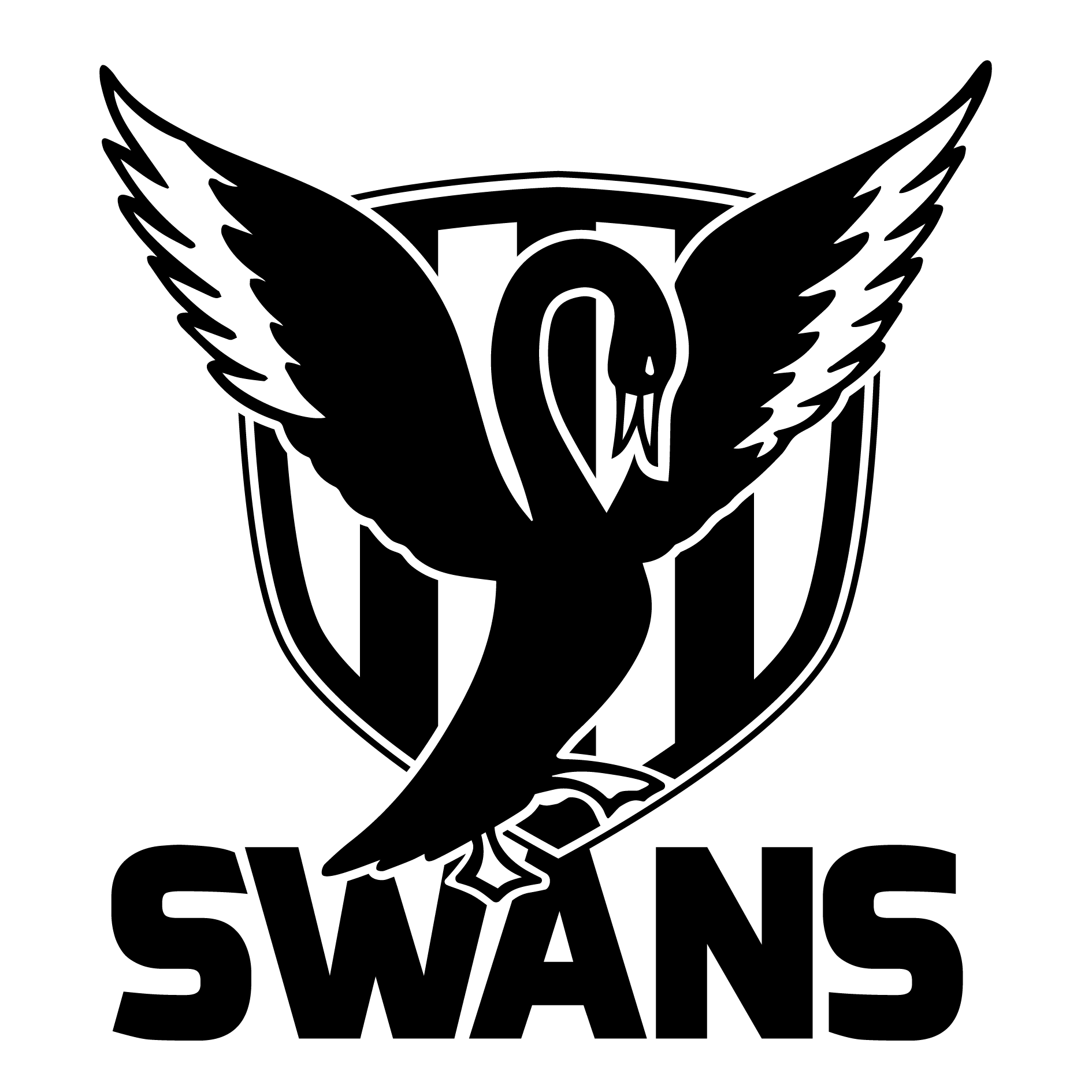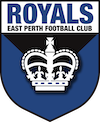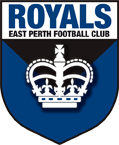Select grade below
- Round 1Sat Mar 3014:30
 6.7.43VS
6.7.43VS 12.10.82
View Stats
12.10.82
View Stats - Round 2Sat Apr 0614:30
 18.11.119VS
18.11.119VS 11.16.82
View Stats
11.16.82
View Stats - Round 3Sat Apr 1313:40
 10.9.69VS
10.9.69VS 8.5.53
View Stats
8.5.53
View Stats - Round 4BYE

- Round 5Thu Apr 2516:10
 10.10.70VS
10.10.70VS 13.13.91
View Stats
13.13.91
View Stats - Round 7Sat May 1114:40
 VS
VS
 East Fremantle Oval
East Fremantle Oval - Round 8Sat May 2514:10
 VS
VS
 Sullivan Logistics Stadium
Sullivan Logistics Stadium - Round 9Mon Jun 0314:30
 VS
VS
 Pentanet Stadium
Pentanet Stadium - Round 10Sun Jun 0914:10
 VS
VS
 Sullivan Logistics Stadium
Sullivan Logistics Stadium - Round 11BYE

- Round 12Sat Jun 2214:10
 VS
VS
 Steel Blue Oval
Steel Blue Oval - Round 13Sat Jun 2914:30
 VS
VS
 Sullivan Logistics Stadium
Sullivan Logistics Stadium - Round 14Sat Jul 0614:30
 VS
VS
 Sullivan Logistics Stadium
Sullivan Logistics Stadium - Round 15BYE

- Round 16Sat Jul 2014:30
 VS
VS
 Sullivan Logistics Stadium
Sullivan Logistics Stadium - Round 17Sat Jul 2714:30
 VS
VS
 Revo Fitness Stadium
Revo Fitness Stadium - Round 18Sat Aug 0314:30
 VS
VS
 Sullivan Logistics Stadium
Sullivan Logistics Stadium - Round 19Sat Aug 1011:10
 VS
VS
 Mineral Resources Park
Mineral Resources Park - Round 20Sat Aug 1714:30
 VS
VS
 Sullivan Logistics Stadium
Sullivan Logistics Stadium - Round 21Sun Aug 2514:30
 VS
VS
 Sullivan Logistics Stadium
Sullivan Logistics Stadium
The Prince of Coaches - By Bill Forrest

The name Phil Matson conjures up the magic of football at the turn of the 20th Century – and more than 80 years later his coaching exploits particularly still rank among the best ever. In fact, his premiership achievements with East Perth still hold records in Western Australia.
In simple terms, Matson coached East Perth to seven premierships – five in succession – and if his life had not been cut short by a traffic accident, then who knows where he would have taken the club.
Matson was born in the Adelaide suburb of Exeter on October 22, 1884 and spent his early life selling fruit from a basket on the wharves of Port Adelaide. After receiving a limited education he headed for the Kalgoorlie Goldfields, where he worked in the mines, but returned to Adelaide and boarded a steamship bound for Fremantle, promptly losing most of his money playing two-up on the boat.
Virtually penniless, he found work and continued his swimming career with the Claremont Amateur Swimming Club.
By 1905, Matson was at the Australian championships in Melbourne, where he won the 220-yard breaststroke title in the world’s fastest time of 3minutes 17seconds. He defended the title in New Zealand in 1907 and by the time the 1908 Australian championships came around at the Claremont Baths in Perth, he had shaved 3secs. off his previous best time.
That was claimed to be a world record, though it was not until the formation of the International Amateur Swimming Federation (FINA) in July, 1908 that world records were officially recognised. A place in the Australian team for the 1912 Stockholm Olympic Games looked a reality, but he turned professional for the reward of 20 pounds in 1909.
While Matson’s swimming career flourished, so did his football.
In the winter of 1903, the Claremont B-grade team was a player short, so the caretaker and coach, a Mr W. Howson, of the Claremont Baths, persuaded Matson to tackle football – and he was an instant success, claiming the team’s best and fairest player trophy.
So the 1904 season saw Matson play one game with West Perth before he moved to the South West to play in South Bunbury’s premiership team. In 1906 he accepted a three-year contract with the Boulder City Football Club in the powerful Kalgoorlie competition, playing in premiership teams in 1907 and 08; the year he was selected in the WA team for the Australian Carnival in Melbourne.
It was there that officials of South Australian club Sturt enticed him to coach the side, which had collected five wooden spoons in eight years. The carnival produced a number of interstate recruits including Robert Honeybone and Matson (Boulder City), Albert Heinricks (East Fremantle), Francis “Diver” Dunne (South Fremantle) and Joe Bushell (North Fremantle).
The Sturt defence was led by Matson at centre half-back and it was said he could leap higher than any Sturt player, seemingly spending more time in the air than on the ground. His team-mates nicknamed him “Aeroplane” Matson, with the Wright brothers making their initial flight just six years earlier.
The arrival of Matson gave Sturt its first great defender and in two years and he seldom played a poor game, beating every centre half-forward in Adelaide.
Matson represented SA in 1909 and ’10 in four games against the VFL and in 1910 he was runner-up to Port Adelaide’s Shine Hosking for the Magarey Medal. After playing in Sturt’s first grand final, which they lost to Port Adelaide by four points 6.13 (49) to 6.9 (45) and with 24 games in two seasons, his Sturt career finished.
In 1911 Matson returned to WA and played with North Fremantle, again representing WA in the Australian Carnival in Adelaide and the winter of 1912 saw him join Subiaco, but not before a clearance wrangle with North Fremantle.
At Sturt, Matson had played mainly at centre half-back, but he was capable of filling almost any role on the field. Not especially tall, he was powerfully built, vigorously competitive and a brilliant kick, whether stab passing or unloading with a long kick into the forward line. He possessed stamina as well as explosive pace and was blessed with a “football brain” without equal. Quite simply, Matson was a gloriously gifted sportsman.
On May 25, 1912, Matson played his first game for Subiaco at the WACA Ground, with the team beating Perth 15.23 (113) to 7.7 (49) and they went on to win the premiership, with Matson a key performer.
In 1913, Matson took over from Joe Scaddan as captain-coach and while his playing ability had long been recognised, his coaching reputation suddenly emerged. He succeeded first-up, with Subiaco beating Perth 6.7 (43) to 4.7 (31) to win the premiership and backed up a week later by downing Goldfields champions Boulder City 15.11 (101) to 8.6 (54) to claim the title of State champions.
The 1914 season saw Subiaco win 10 of the 14 home-and-away matches under Matson’s guidance, with several losses costing them the minor premiership and the right of challenge. East Fremantle made full use of the challenge rule after losing a semi-final with Subiaco, but successfully challenging South Fremantle, who had beaten Subiaco by eight goals for the premiership. The highlight of the 1914 season was Matson’s selection as captain of the WA team for the Australian Carnival in Sydney.
In 1915, former South Fremantle coach Jack Leckie joined Subiaco as coach and with South Australian Wally Steele named captain ahead of Matson, who had been below form the previous year, the team beat Perth 3.3 (21) to 2.7 (19) to claim the premiership.
When the highly-respected Leckie left Subiaco at the end of 1916, Steele took over as captain-coach, but this decision clearly rankled the charismatic Matson, who – after his success as captain-coach in 1913 – had declared his intention of pursuing a coaching career.
The decisions by the Subiaco hierarchy made Matson’s departure from the club inevitable.
He started the 1918 season with Subiaco, but switched to East Perth for the second game and there was confusion over whether Matson had been cleared to play. The League directed East Perth not to play Matson until the matter was resolved, but they defied the order and he continued to play, with the result that each opposing club lodged a protest with the Protest and Disputes Board.
On Saturday July 27, Subiaco named Matson in their team, but naturally he failed to appear and played with East Perth. After much protesting, the League fined East Perth 10 pounds for playing Matson and the club was ordered to forfeit the match it had won against Subiaco.
East Perth still finished on top of the ladder, losing just the one game to East Fremantle, plus the forfeit and in the grand final it was East Fremantle 8.9 (57) coming out on top of East Perth 3.13 (31). East Fremantle again won in the Challenge match, 11.8 (74) to 8.5 (53).
East Perth’s Annual Report said: “We desire to take this opportunity of congratulating the East Fremantle Club (‘Old Easts’) on once again wrestling the premiership from all comers and also to thank the members for the efforts that placed the club the nearest to premiership honours that has been its experience and express the wish that now victory has been achieved by the Allies in the titanic struggle for humanity, a continuance and extension of support and combined effort may yet give us the coveted honours.”
Matson’s defection profoundly influenced the post-war rise to power of the East Perth Football Club. In his first year as a player and coach, Matson played six games and went on to play 35 between 1918-23, retiring aged 38.
Under the astute coaching of Matson, East Perth’s five consecutive premierships from 1919-23 were an Australian record until Port Adelaide’s six flags from 1954-59.
The State game against South Australia in Perth in 1923 was Matson’s first as coach of WA, who had been soundly beaten in Adelaide 10.13 (73) to 3.5 (23) earlier in the season. The return match at Perth Oval was played before a crowd of 18,600 and saw WA triumph 13.13 (91) to 4.3 (27).
The run of five flags was broken in 1924 when the league team won 12 qualifying games and lost three, losing the second semi-final to Subiaco by eight points, 8.13 (61) to 7.11 (52).
At the Australian Carnival, Matson coached WA to victories over all the other States, but was narrowly beaten by Victoria 15.13 (103) to 14.11 (95).
Seeking more coaching challenges, Matson went to Castlemaine, in the powerful Bendigo League, in 1925 and transformed the group of inexperienced players from the bottom of the table to minor premiers and runner’s-up in the grand final. He was quickly chased by clubs in Tasmania and Victoria, accepting the coaching job at Richmond, only to find the Victorian Football League refusing a clearance – and without any explanation.
East Perth persevered in its endeavours to entice Matson home and he subsequently accepted the coaching role for 1926.
Opening with a win against new team Claremont-Cottesloe, four losses and a draw followed before 14 successive victories to finish as minor premiers and they comfortably regained the premiership flag with victory over Subiaco, 11.19 (85) to 5.5 (35).
The annual report of 1926 had the following to say about Matson:
“He is a wonderful general of a football team and has the insight to detect immediately any defection in the system of play. Nothing ever misses his eye. He is an expert judge of a good footballer and has the power to select the right player to counteract the style of brilliant opponent. Possessed of a fine personality, he has the quality to enforce absolute obedience and his forceful, but sympathetic manner inspires confidence, tenacity and perseverance in the minds of young players. While Phil is with the club there need be no occasion for alarm as far as the standard of play of the team is concerned, and it is the success of the team from a playing point of view is assured. There is every reason to believe that Mr Matson will be available for many seasons. “
During 1926 WA played South Australia in Adelaide, losing 8.10 (58) to 10.5 (65) and again with Matson as coach they downed Victoria in Perth twice 9.5 (59) to 7.15 (57) on Saturday and 11.10 (76) to 10.8 (68) on Tuesday.
A month later WA beat South Australia 18.7 (115) to 10.5 (65) confirming the State as unofficial Australian champions, with SA also defeating Victoria.
The 1927 premiership was only won after several strenuous matches with East Perth winning 14 home-and-away games and losing four, claiming the minor premiership, which allowed them to challenge and win the premiership. Matson’s effort of coaching the team to seven premierships and a runner’s up role and a third place saw him elected as the 11th Life Member of the club.
Matson was appointed coach of WA for the 1927 Australian Carnival in Melbourne, where Victoria beat WA 11.19 (85) to 10.12 (72) on its way to winning the Carnival, with other victories over NSW, SA and Tasmania.
Matson was back as East Perth coach in 1928 and by mid-season they had won five of their eight games to be on equal terms with Subiaco and East Fremantle at the top of the premiership table.
Tragically, on Monday June 11, 1928, Matson was a passenger in a car involved in a horrendous accident in Nedlands, when he was thrown from the vehicle and suffered severe injuries.
He was rushed unconscious to the Perth Hospital, but never regained consciousness and passed away on Wednesday June 13.
His untimely death was felt by the whole football fraternity and the deep respect for Matson was reflected in the huge attendance at his funeral, with players, officials from all WAFL clubs, league officials and representatives of other sporting bodies. The Anglican service at the grave-site was conducted by the Rev. A. Haining, who paid an emotional tribute to Matson’s sportsmanship: “Peace to one of the greatest footballers and probably the greatest sporting idol the West has seen in the last score of years.”
Mr AA Moffat, the president of the WAFL and the Australian Football Council paid this tribute in the Daily News of Thursday June 14: “League football has been deprived of one whose loss will be difficult to replace. Western Australia has had many fine exponents of Australian football. With the exception of the late A.J. Thurgood, I cannot recall another player who I would place in front of the late Phil Matson as the finest footballer to thrill the public of our State. No position on the field would find him misplaced. At all times the ball was his objective, not the man. His judgement was uncanny and once he placed his hand on the ball it was gripped as if in a vice.
“His aerial flights were spectacular and thrilling and being possessed of exceptional football brains, the results of his play were often confounding to opposing teams.
“Apart from his qualities on the field, he was an outstanding judge of players and as a tactician, was not surpassed. Over a period of very many years Phil Matson rendered yeoman service as a player to the clubs with which he had been associated on the Goldfields and in the metropolitan area. To his adopted State of Western Australia he gave of his best and as a representative in the carnival games, he was always one of the outstanding players. The Sturt club and the South Australian public had many appreciative opinions of his excellent ability as a player in that State.
“On his retirement from the playing fields he became celebrated as a coach not only in his club, but to State and carnival teams. In this he was equally as successful as he had been as a player, and in my opinion was the greatest coach the Australian game has known. Players and others associated with the game will fully realise the great loss his death means and the difficult gap thereby created. With the players, Phil Matson seemed to be a super-coach, having a personality which enabled him to extract from those he was handling the best that was within them. His pre-match and half-time addresses were of such a nature that players and others privileged to them became inspired with the sound advice he tendered. Words were never wasted and he always succeeded in striking the target at the right spot.
“The record of successes achieved by him will be a lasting memorial to his greatness and, in conjunction with many others, I deeply deplore the untimely severance of his connection with the national game in which he was such an outstanding personality.”
- Researched and written by Bill Forrest

 8.5.53
8.5.53



















